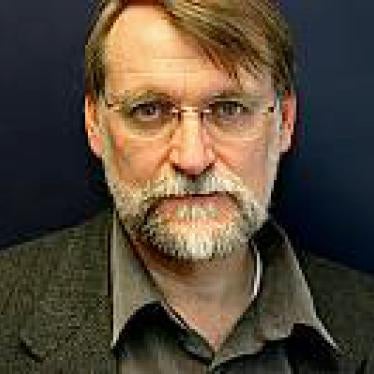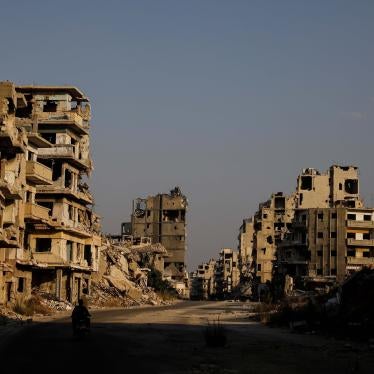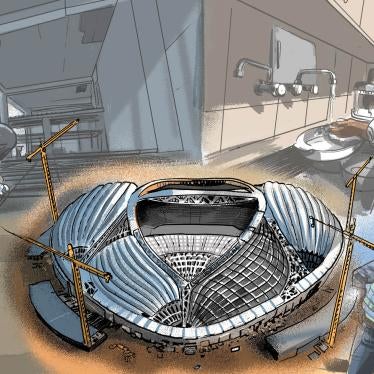The refugee burden that Syria’s neighbors are shouldering is heavy and should not be borne alone. But keeping people fleeing for their lives in buffer zones inside Syrian borders risks trapping rather than protecting them.
Yet this is precisely what President Michel Suleiman of Lebanon proposed on April 4, joining others such as Foreign Minister Ahmet Davutoglu of Turkey, who made a similar call in November 2011, and Prime Minister Abdullah Ensour of Jordan, who spoke in January of securing “safe havens” inside Syrian territory, saying of potential new refugee flows, “We will stop them and keep them in their country.”
It appears that steps are being taken to create such border zones. The United States is working with Jordanian authorities to train Syrian opposition forces in what may be an attempt to set up a buffer zone on the southern border of Syria for defectors from the army and displaced civilians.
The term “buffer” suggests that the purpose of such zones is to insulate neighboring states from the effects of the Syrian conflict, and statements by senior officials in neighboring states indicate that stopping the flow of refugees is their primary motivation.
Syria’s neighbors have been remarkably hospitable to Syrian refugees, taking in 1.2 million so far. But the warning signs that their generosity is reaching its limit are clear.
The 50,000 displaced Syrians massed on the Syrian side of the Turkish border near the town of Atma raise questions about how open that border actually is.
There is no question about the Iraqi border; its main border crossing with Syria, Al Qaim, has been closed since October. Israel’s border has been shut to Syrians and is not even part of the conversation. Jordan, meanwhile, is denying entry to four highly vulnerable groups: all Palestinians living in Syria; all single men of military age; Iraqi refugees living in Syria; and anyone who is undocumented, despite the widespread bombing in Syria that not only destroys homes and properties but documents as well.
The Universal Declaration of Human Rights upholds as a basic human right “the right to seek and to enjoy in other countries asylum from persecution.” The fundamental right is to cross a border to seek protection.
Some displaced Syrians may prefer to remain inside their country, particularly as opposition forces stabilize areas under their control. International humanitarian organizations are already providing some cross-border humanitarian assistance to rebel-held areas, and should, as a matter of principle, increase their assistance to meet the needs.
But as international actors provide cross-border aid or even consider more robust engagement inside Syria in the name of civilian assistance or protection, this should not be used as a pretext for containing the flight of people who feel threatened.
Keeping displaced people penned up inside Syria is not a solution that can ensure their safety. Governments outside the region need to step up their support for the front-line states to minimize the destabilizing impact of the massive refugee inflows.
There are several ways to do this. First, by meeting the humanitarian needs of the displaced; the U.N. humanitarian appeal for the Syrian humanitarian crisis is only 50-percent-funded. Second, by providing bilateral support to bolster the capacity of front-line states to help sustain their own affected communities and prevent anti-refugee backlashes; and third, by supporting humanitarian evacuation, as needed, at the request of front-line states and in coordination with the U.N. Refugee Agency.
At the end of the day, however, a short-term containment strategy, while attractive in its simplicity, is really no solution, providing neither protection for refugees, stability for neighboring states nor a resolution to the crisis itself. An effective international response must address and resolve the causes of the displacement as well as the interim needs of the displaced.
Bill Frelick is the refugee policy director at Human Rights Watch.







